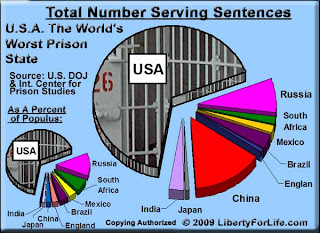The Silent Generation, born between 1925 and 1945, consisted mostly of people who were too young to partake in WWII, but many had parents or relatives involved in the war. One of the most popular styles of music during the time was swing music, featuring artists like Duke Ellington, Benny Goodman, Glenn Miller, and Count Bassie. Their music focused on the flow of the songs, and was happy and upbeat, which offered an escape from the uncertain times of WWII.
The Baby Boomers, born between 1946 and 1964, were all about personal freedoms. The Civil Rights Movement, the feminist movements of the 1970s, as well as sexual expression and experimentation with drugs were all defining aspects of this generation. Rock and Roll was the music of choice, much of which was highlighted at the Woodstock music festival during the summer of 1969. Jimi Hendrix, Santana, and the Beatles were among the most popular artists of the time.
Members of Generation X were born between the late 1960s and late 1970s to early 1980s. This generation reflected an increase in diversity, through an increased acceptance of different races, classes, and sexual orientations. Although this generation were referred to as "slackers" at the time, studies have shown that they are now one of the happiest and most educated generations. This group was largely influenced by the rise in popularity of MTV, and enjoyed bands like Pearl Jam, U2, and other "grunge rock" groups.
Although the official dates are disputed, Generation Y consists of people currently in their "tweens", to people in their late 20's. This generation has grown up in an increasingly globalized world, and because of such, they have become fluent with technology and communication. They emphasize individual expression and acceptance, much of which has come in the way of online video games, social networking sites such as Facebook, and social media sites like YouTube. Generation Y has had a wide range of musical types, from hip hop, to indie rock, and more recently, a shift to electronic dance music, as well as various spin offs such as "dubstep"which features aspects of electronic music with an emphasis on bass and unconventional rhythm.
When examining the range of musical styles, from Duke Ellington’s swing music, to the electronic and dubstep genre of today’s DJ’s, the extreme difference of musical taste among different generations becomes glaringly apparent. However, as music can be thought of as a reflection of the era in which it is produced, we begin to see how we may not be so different from our parents’, or even or grandparents’ generation before us. Just as the swing music of the Silent Generation was an escape from the horrors of WWII, the electronic music of today gives Generation Y’ers an avenue for expression and escape from the harsh economic circumstances and uncertain futures that many of us face today. Parallels can also be drawn between The Baby Boomers and Generation Y. Many Generation Y’ers today attend events such as Electronic Dance Carnival, and Hard Haunted Mansion, which are electronic and dubstep music festivals that feature large, outdoor stage setups, and involve a widespread usage of drugs – many of the key characteristics of the “Woodstock style” of music culture that defined the Baby Boomer generation. Finally, we have Generation X, which gave rise to the MTV music culture – still a popular network and driving force in today’s youth culture.
So next time your mom harangue’s you for your musical tastes, just remind her that there was probably a time when her parent’s referred to the Beatle’s and other rock n’ roll as “garbage” – something that would be considered preposterous today.









